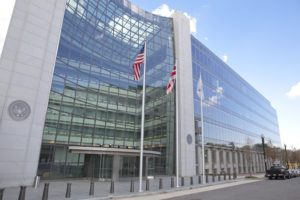
President Trump nominates Judge Brett Kavanaugh for the Supreme Court, Trump Administration announces additional tariffs on China, and more…
IN THE NEWS
- President Donald J. Trump announced his nomination of Judge Brett M. Kavanaugh to replace retiring U.S. Supreme Court Justice Anthony M. Kennedy. Kavanaugh—who currently serves on the U.S. Court of Appeals for the D.C. Circuit—has ruled on many major regulatory cases throughout his career. In a 2016 decision, Kavanaugh stated that “independent agencies pose a significant threat to individual liberties” and described the structure of the Consumer Financial Protection Bureau as “a gross departure from settled historical practice.” Last year, he expressed skepticism of broad court deference to administrative agency authority under the Chevron doctrine, also arguing that agencies may only issue major rules when “clearly authorized by Congress.”
- The Trump Administration published a list of Chinese goods that the United States would subject to an additional 10 percent tariff, increasing tensions between the two countries and concerns about an escalating trade war. The list includes minerals and chemicals, various food items, and consumer goods such as purses. U.S. Senate Finance Committee Chairman Orrin Hatch (R-Utah) called the policy “reckless” and noted that “this action falls short of a strategy that will give the Administration negotiating leverage with China while maintaining the long-term health and prosperity of the American economy.”
- President Trump issued an executive order calling for the exemption of administrative law judges (ALJs) from competitive examination and competitive service selection procedures. Federal agency heads are directed to appoint ALJs with broader latitude, whenever consistent with their applicable statutes. The order comes in response to the U.S. Supreme Court’s recent decision in Lucia v. Securities and Exchange Commission (SEC), which held that the SEC’s ALJs must be appointed by the President or the head of a department.
- The U.S. Department of Justice announced a new task force to “fight fraud affecting American citizens” including health care fraud, digital currency fraud, and other financial crimes. Deputy Attorney General Rod J. Rosenstein will lead the task force, formed in response to an executive order that called for “the investigation and prosecution of cases involving fraud on the government, the financial markets, and consumers.”
- The U.S. Department of Commerce announced that Chinese telecommunications company ZTE will no longer be banned from doing business in the United States once it completes a $400 million escrow deposit. The Commerce Department had revoked ZTE’s export privileges in April on grounds that the company had violated laws against shipping telecommunications equipment containing American technology to Iran and North Korea. In a joint letter, Senators Mark Warner (D-VA) and Marco Rubio (R-FL) urged President Trump to reconsider lifting the ban on ZTE, calling the Chinese company “a significant threat” to American national security.
- The U.S. Court of Appeals for the D.C. Circuit affirmed the Federal Aviation Administration’s (FAA) authority to regulate recreational drone use. Chief Judge Merrick Garland wrote that the FAA’s regulations fell within the rulemaking authority granted to the agency by a 2012 law, and that the rules were “neither arbitrary nor capricious.”
- The U.S. Environmental Protection Agency permitted the increased manufacturing of glider trucks, which combine new truck bodies with older engines that are not in compliance with emissions requirements. In a statement, the Environmental Defense Fund warned that increased production of glider trucks—which can produce emissions 20-40 times higher than modern engines—could cause up to 12,800 premature deaths, and that it would now be harder for local governments to meet air quality standards.
- In Indiana, the Marion County Circuit Court dismissed the First Church of Cannabis’s suit challenging Indiana’s ban on marijuana as a “substantial burden” on its members’ exercise of religion under the state’s Religious Freedom Restoration Act (RFRA). Judge Sheryl Lynch ruled that Indiana’s marijuana regulations did not violate RFRA because the state has a “compelling interest” in regulating illicit drugs and a ban was the “least restrictive” means of achieving that interest. Indiana Attorney General Curtis T. Hill reportedly praised the court’s decision, stating that “no one can evade the law simply by describing their illegal conduct as an exercise of religious faith.”
- The U.S. Food and Drug Administration (FDA) issued six new draft guidance documents covering several aspects of gene therapies. Commissioner Scott Gottlieb stated that FDA aimed to “modernize how we approach certain aspects of these products in order to make sure our approach is tailored to the unique challenges created by these new platforms” while still maintaining the agency’s “gold standard for assuring safety and efficacy.” The guidance addressed the development of gene therapies for specific diseases and the process for manufacturing gene therapies.
WHAT WE’RE READING THIS WEEK
- In his last term on the U.S. Supreme Court, Justice Kennedy took a “broad and aggressive swipe” at the relationship between federal agencies and courts, wrote Bridget C.E. Dooling of the George Washington University Regulatory Studies Center in an op-ed for The Hill. Since the Supreme Court’s 1984 opinion in Chevron U.S.A. Inc. v. Natural Resources Defense Council Inc., courts have deferred to agencies’ reasonable interpretation of statutes. But in his recent concurrence in Pereira v. Sessions, Justice Kennedy went “out of his way” to criticize courts’ “reflexive deference” under the Chevron doctrine, Dooling wrote, perhaps signaling a shift in the Court’s attitude toward Chevron.
- In an article for the International Energy Law Review, Flavio Inocencio of Coventry University examined regulatory agencies’ roles in the oil and gas industry across the globe. Inocencio wrote that oil and gas regulatory schemes generally take one of three forms: the national oil company, the ministry of oil or energy, and the independent regulatory agency. He noted that the “increasing adoption of the independent regulatory agency model in many jurisdictions” is the current trend, as “it is based on the need to preserve technical expertise and autonomous decision-making.”
- In a recent article, Daniel O’Maley, digital policy specialist at the Center for International Media Assistance, evaluated China’s efforts to promote “Internet sovereignty”—the notion that every government should control the Internet within its own country rather than be subject to a global model of Internet governance. O’Maley argued that such international, collaborative Internet governance tends to “uphold rights-based values,” and he urged popular western technology companies to resist China’s desire to surveil and censor the Internet.



